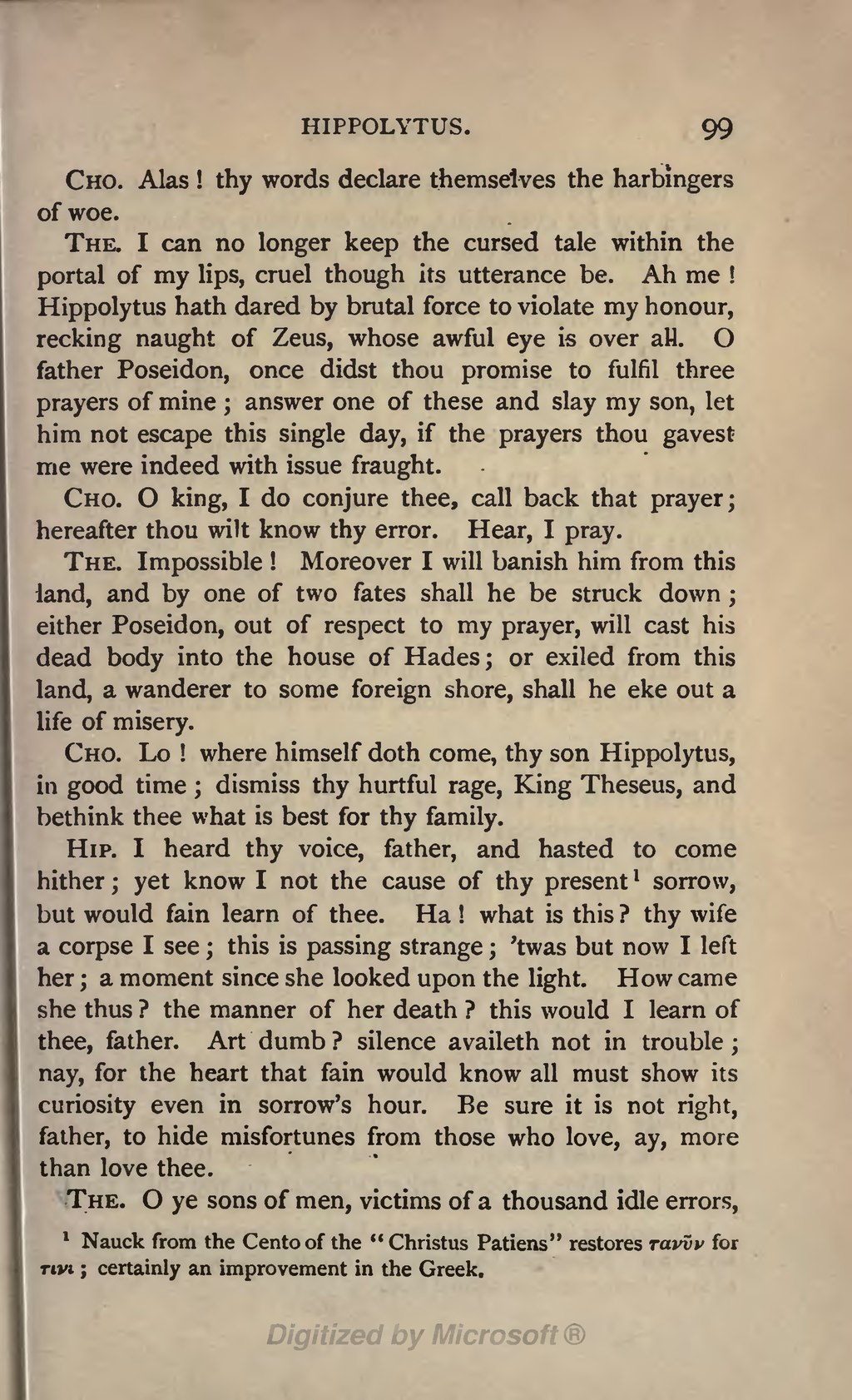Cho. Alas! thy words declare themselves the harbingers of woe.
The. I can no longer keep the cursed tale within the portal of my lips, cruel though its utterance be. Ah me! Hippolytus hath dared by brutal force to violate my honour, recking naught of Zeus, whose awful eye is over all. O father Poseidon, once didst thou promise to fulfil three prayers of mine; answer one of these and slay my son, let him not escape this single day, if the prayers thou gavest me were indeed with issue fraught.
Cho. O king, I do conjure thee, call back that prayer; hereafter thou wilt know thy error. Hear, I pray.
The. Impossible! Moreover I will banish him from this land, and by one of two fates shall he be struck down; either Poseidon, out of respect to my prayer, will cast his dead body into the house of Hades; or exiled from this land, a wanderer to some foreign shore, shall he eke out a life of misery.
Cho. Lo! where himself doth come, thy son Hippolytus, in good time; dismiss thy hurtful rage, King Theseus, and bethink thee what is best for thy family.
Hip. I heard thy voice, father, and hasted to come hither; yet know I not the cause of thy present[1] sorrow, but would fain learn of thee. Ha! what is this? thy wife a corpse I see; this is passing strange; 'twas but now I left her; a moment since she looked upon the light. How came she thus? the manner of her death? this would I learn of thee, father. Art dumb? silence availeth not in trouble; nay, for the heart that fain would know all must show its curiosity even in sorrow's hour. Be sure it is not right, father, to hide misfortunes from those who love, ay, more than love thee.
The. O ye sons of men, victims of a thousand idle errors,
- ↑ Nauck from the Cento of the "Christus Patiens" restores τανῦν for τινι; certainly an improvement in the Greek.
